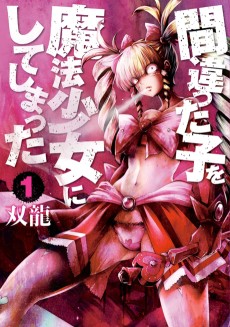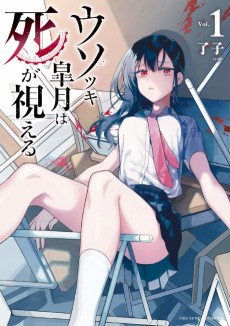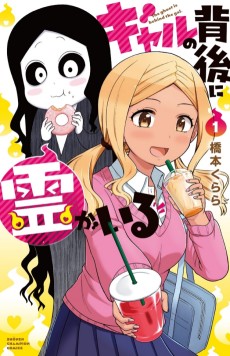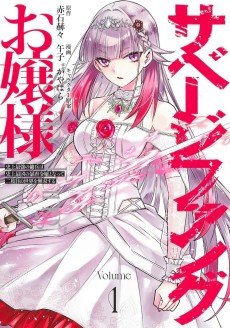FURYOU TAIMASHI REINA
STATUS
COMPLETE
VOLUMES
6
RELEASE
October 19, 2021
CHAPTERS
80
DESCRIPTION
"I get yelled at, my desk gets thrown out the window, I get hit with a fist wearing some knick-knack..."
Shinguji, the class president, is concerned about the delinquent behavior of Reina Suzuno, a transfer student with blonde hair, a sukajan and loose socks.
Her words and actions, which were thought to be a form of bullying or harsh punishment, are actually a unique method of casting out evil spirits. Her true identity that of a skilled exorcist, strong enough to make the toilet-bound Hanako-san tremble!
Notes:
- Nominated for the Tsugimanga 2020 Award in the Web Manga Category.
- Includes 9 extra chapters.
CAST
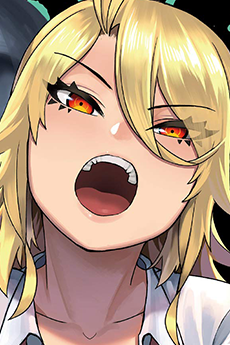
Reina Suzuno

Riku Sasaki
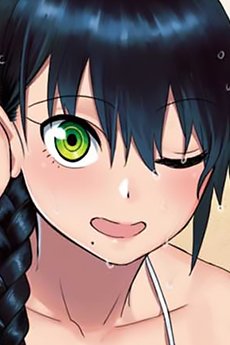
Kokoro Shinguuji

Kotarou Tendou

Ken Watanabe
CHAPTERS
REVIEWS

thePingusDingus
35/100Furyou Taimashi Reina is a case study in how not to write a horror comedy.Continue on AniListPart 1: Introduction I’m a big fan of Mieruko-chan, Liar Satsuki and School-live! If there was ever a sub-genre of slice of life that I adore, it’s that of high school girls going up against supernatural phenomena.
Anyway, Furyou Taimashi Reina, a manga about high school girls going up against supernatural phenomena. It’s not good.
Part 2: The story and the characters! Are they any good? 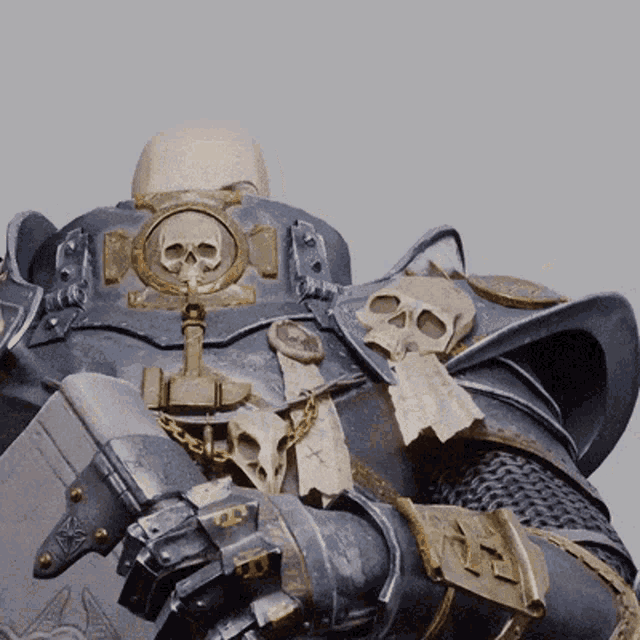
The story isn’t that deep. It’s just Reina and friends going to one supernatural phenomenon, performing an exorcism, and moving on to the next. Sometimes there’ll be an attempt at an emotional moment but those fall flat whenever they are tried.
Here’s an example: Tendou grappling with the fact that he couldn’t save his sister.



Except he doesn’t actually grapple with it, there’s two pages about it and we move on. There’s also a plot line about Reina failing to save her friend from an abusive father, but then she visits an alternate dimension in which the friend is fine and has a loving dad, which certainly doesn’t undercut any emotional weight that a story about domestic abuse could have. Speaking of domestic abuse, this manga pushes the insane idea that it, alongside some other complicated issues like gender dysphoria, aren’t actually that nuanced, but just really bad cases of ghost possession. For the love of God, either commit to your serious tone or don’t. Either try to have social commentary on domestic violence or write it out entirely in favor of the uncomfortable fanservice.
This manga has so much fanservice! I mean, the first volume of Mieruko-chan was bad, but it is a chaste saint compared to this galore of gratuitous boob shots of teenage girls. By far the grossest offender was a joke about one of the characters feeling ashamed of her small boobs (which is always funny) because that means that she can’t seduce her teacher.
One more thing to note is the final volume. The manga got axed before the author was ready to end it, and it shows in how rushed and incomprehensible it is. Any sort of character development was skipped in favour of exposition textwalls about what the characters are like and where they are. Reina also suddenly has magic powers, there's alternate dimensions and it's all dumped onto the reader so fast. The aforementioned textwalls are genuinely painful to read.
Anyway, uh, characters, yeah? This is a segment about story and characters.
Basically, there’s Reina, the mean blonde, her manic pixie tomboy friend Riku, the uptight class president Kokoro, grief-stricken Tendou and their women-fearing teacher. As far as “personalities” go, that’s it. As I said, there’s a lot of fanservice here and it always takes precedence over any sort of character building. This is because the author either thinks that fanservice is more likely to grab people, or he can’t really write character development. Seeing how empty the emotional scenes are, I assume it’s the latter. Tendou is the one who lost his sister and feels guilty about not being able to save her, which is always an interesting premise, it just sucks that a character like him was stuck in a manga this bad.
Part 3: These monster designs are jokes, not funny ones either After reading Mieruko-chan, Bibliomania and several Junji Ito stories, you could say that I have developed a standard for monster design in manga. I really don’t want this to sound pretentious, I’m not saying that you need nightmare fuel design, but if you’re going to make a monster manga, please don’t make the monsters look like rejected designs from The Mandela Catalogue.


Sure, these would be pretty frightening if you saw them in real life, but in a horror story? They’re just meh, and leave a lot to be desired. Most of them are just a spooky face or a spooky humanoid.
My favourite design is this Bach portrait monster:

I don’t think it’s scary, I think it’s the fucking stupidest one and it got a little chuckle out of me.
Oh, that’s not to mention This Man!

Yeah, one of the main villains they face is internet sensation and infamous urban legend This Man. In a manga which is supposedly about fighting other-worldly creatures beyond our comprehension, what an uninspired and actually garbage choice for the antagonist.
Part 4: Conclusion Furyou Taimashi Reina is a painful, insulting, transphobic manga. I think it’s unfunny, I hate it, I never want to think about it again and I don’t even like it.
Not recommended. Good night.

CaptainZaimon
100/100An interesting blend of comedy and tragedy with a likable cast and some cool monster designs here and there.Continue on AniListInitially, I started this series out of morbid curiosity - another reviewer on this site made it sound like the author of this series spat in their cereal, ate their dog, kidnapped their firstborn, engaged in this and that with their wife, and probably started a generations-long blood feud as a bonus. I went in expecting a total disaster akin to Gal Cleaning or something, but instead I ended up with a series that's quickly become an all-time favourite of mine and characters I've been missing dearly ever since I finished reading it.
See, the story of Reina is fairly straightforward, and for the most part, it's just a comedy series. But what makes it unique is how seamlessly the author manages to blend comedy and tragedy - your mileage may vary when it comes to how much of the jokes will land for you, but the series' more emotional arcs are where it really shines.
We start off with a pretty standard "oh no, the transfer student is WEIRD" premise. Our titular Reina is a (dyed) blonde-haired menace that writes all sorts of slurs and insults on people's desks, devastates school property, intimidates men and women alike, and so on. As it turns out, however, she's an exorcist - but a very modern one. See, there's logic to her crazy antics - what else is an exorcism but telling ghosts and evil spirits and such to fuck off? Well, she just takes a literal approach to it. Because of this, a lot of the series' humor relies on showing us situations where Reina's delinquent behavior is witnessed by people "not in the know" regarding the supernatural.
Our second main heroine, Kokoro, is something of an audience insert at times (due to Reina's larger-than-life energy, I think it was a great choice to have a sort of "chronicler" character). Being a model student, she decides somebody has to set this delinquent transfer student straight, especially after she seemingly becomes one of her targets herself, and since her classmates and school faculty are pretty much helpless, it's up to her to do it on her own. We're even treated to a hilarious scene that comes off as a bit of satire on the incompetence (or perhaps formal limits?) of various school organs, regardless of country - the student council does all sorts of virtue signalling about how bullying is bad and "somebody should do something about her!", but ultimately it's up to Kokoro alone to do that something.
As it turns out, the reason Kokoro (or, as Reina starts calling her following one particularily hilarious side story, "Bento") attracts Reina's attention is because she has an unusual ability - something about her attracts all sorts of malicious or plain inconvenient ghosts and spirits. After clearing up the misunderstanding, the two end up forming an unlikely alliance and hanging out, gradually investigating all manner of supernatural phenomena across the school. In the process, we're slowly introduced to the rest of our main cast: Riku, a friend of Kokoro's who comes off like your standard tanned sporty tomboy type but is actually a passionate investigator of the paranormal...and a werewolf; Tendou, a tough bara dude who shares a body with the spirit of his dead sister Chii-chan; and Watanabe, a teacher with a crippling fear of women stemming from his encounter with Hasshaku-sama.
There are also some really funny side characters, like a three-person group of BL-obsessed students who misinterpret any interactions between Tendou and Watanabe as steamy yaoi scenarios and keep assuming Reina must be some sort of bisexual Casanova after witnessing her putting her hand in Riku's underwear and telling Tendou to undress, or the school's headmaster who tries to sound like a mentor character from some crappy shounen.


For the most part, the plot follows our main cast investigating various supernatural phenomena in their hometown, often within the confines of their school building. Said phenomena range from short gags (like an anatomical model possessed by an exhibitionist's soul) to surprisingly emotional, longer plotlines, like a flashback showing us why Reina is so dedicated to exterminating ghosts - frankly, that arc in particular is quite something. I never would've guessed that the same series that has jokes like "bara guy wears a frilly dress at night" or "the main heroine forces a pedophiliac youkai to become her maid and live in a doghouse as punishment" would pull off a serious arc tackling the issue of domestic abuse (even going into detail about why a victim may not be eager to speak up about what's happening) without adding any jokes to it. In fact, the inclusion of both this particular more serious arc and a few other less humorous ones never feels forced - rather, it continues the overarching plot of how evil spirits intersect with our world and why warding them off is vital.

On the topic of bara guys in dresses that I briefly alluded to above - one running joke in particular may come off as questionable to some, especially given we live in an era where dark and/or politically incorrect humor is associated less with the likes of Monty Python or the Eric Andre Show and moreso with social media brainrot, cheap shock value made by people who have never held anything dear in their lives and all sorts of grifters. As mentioned, Tendou's main gimmick is that he's this big, buff, serious dude, but he shares his body with the spirit of his deceased younger sister who died in an unfortunate accident, and sometimes she takes over - so we get a number of scenes where the gag boils down to "teehee, big buff dude in a tiny frilly dress and/or acting like a little girl". I understand if it comes off transphobic to some, but much to my surprise, the way this series uses it is not to ridicule any particular person's identity, but quite the opposite, in fact.
We do get two or three chapters where, indeed, the joke is just the same as it is with, let's say, Ladybeard - it's a big tough guy wearing stereotypically girly clothes, the contrast is amusing because it's not something we see on a daily basis and it goes against dress norms in countries as attached to their conservative lifestyles as Japan, etc. It's not mean to be offensive or show everybody who's like that is creepy and weird, it's just a visual gag about contrasing the stereotypically masculine wtih the stereotypically feminine.

I don't think I need to explain how, if not handled properly, a joke like this can come off as incredibly offensive to LGBT people and anybody supporting them - I consider myself a strong supporter of LGBT rights, so I do have to admit some scenes got me in a bit of a "ooops, we're going there, huh..." mindset, but I was pleasantly surprised to see the author had the maturity needed to handle a joke such as this. Tendou is not shown to be any less of a man by doing this, nor is he ridiculed for it. His parents, unaware of his little sister's ghost inhabiting his body, do give him weird looks and before learning about the situation and getting help from the rest of the cast he's afraid that he's got a sleepwalking-crossdressing habit of sorts, but it's ultimately just an intro to a much more interesting subplot - initially, unaware of this newfound hobby of his being a side effect of a ghostly possession, he begs the main heroine to exorcise it.
However, when it turns out that it's his little sister, he gains a newfound resolve to help her live out the life she didn't get to experience - Reina herself even points out that it's no big deal if a harmless female ghost and a male soul coexist in the same, biologically male, body - hell, it could even help said female ghost pass on peacefully, which probably wasn't an intentional subtext, but which I'd argue made for a pretty nice metaphor for coming out of the closet and/or exploring one's gender identity.
I mean...c'mon, in a series all about making peace with yourself, moving on from your inner troubles and accepting who you are, it would be a weird move to suddenly start getting offensive and saying "this dude's less of a man for putting on a dress. Aren't trans people and crossdressers wacky and weird and stupid lololol!?!?!", now wouldn't it?
We get a bit of a sequel to this joke and all its potential to create issues with a subplot involving This Man, a superpower-wielding human who traps the main cast in a dream world (as a side note - most of you will probably recognize what is he based on. It's that "EVER DREAM OF THIS MAN?" image we've seen used in so many pieces of media, ranging from serious horror manga to mediocre analog horror projects over the years, which I think is a hilarious piece of tribute to one of the unspoken greats of mysterious and eerie media).
Long story short, his arc kicks off because he sees Watanabe-sensei crossdressing as part of a school event, mistakes him for a woman, and traps the main cast in a simulation where Watanabe is his wife and everybody's lives are upside-down. With the main heroine calling him out on being delusional, without thinking too deeply about the joke here, we could easily assume the author's going "ooh, MtF people are delusional" or something equally horrid. However, if we think about it, and take into account the core themes of Reina's more serious and emotional parts, this is more of a comment on accepting who you are - sensei is scared of women due to childhood trauma. According to a bonus doodle included with one of the volumes, dressing up as one was one of the methods that his family attempted to make the unquestionably malicious and perverted Hasshaku-sama stop haunting him - as such, we can easily assume becoming a woman would be his nightmare, as it'd force him to be somebody he doesn't want to be.
Thus, This Man is shown as a delusional person with a god complex, who's keen on forcing others into scenarios that fit his own perverse fantasies without taking their feelings into consideration - all derived from his refusal to accept that he could be attracted to a fellow man, despite doing so just a few days earlier. I'd argue This Man is a caricature of the average person online who likens crossdressers and anybody who doesn't adhere to his narrow-minded views of gender-appropiate clothing standards to "traps", whining about how they got tricked into believing they were somebody they aren't, and lives in constant fear of their - and anybody else's - masculinity being shattered the moment they admit to being attracted to a person of the same gender as them; intentional or not, I'd argue this comes off as the exact opposite of offensive, if anything I found it hilarious, as somebody who met wayyyyy too many people like this over the years.

Moving on from the questionable and into the unquestionably positive - like I said, the best part of Reina, aside from most jokes being genuinely funny, the main cast having unique and lovable chemistry, and some soul-crushing subplots written with the maturity and emotional weight needed for them to work, is its monster design. I wouldn't say it's anything to write home about - it's far from amazing monster design I've seen in works like Bibliomania, anything by Shigeru Mizuki, Keyman, Ayashimon, or the average tokusatsu entry (have you seen Another Riders in KR Zi-O? Or the Magears from KR Zero-One?! They slap!) - but it does have some memorable, standout designs that I've found uniquely charming, even if they aren't the most creative conceptually. Below you can find some of my favourites - I do not want to spoil their respective roles in the story too much, but they're worth showing nonetheless. One of the most surprising inclusions, which I loved, was the Baku - here presented as a gigantic monstrous tapir with a sly smirk - and his daughter, the latter of whom is a mutual of Reina that she occasionally contacts for help.

Another gag and idea for a ghost that I thoroughly loved and laughed like an idiot over pops up in an arc where the main cast attempts to contact spirits via an Ouja board. First, the main heroines are unsure whether ghosts obey their language's laws of phonetics and grammar (as somebody who failed my phonetics exam twice during my journey to obtain a licentiate, this got a hearty giggle outta me...still does, even now that I have a Master's Degree!)...

...only for the ghost to turn out to be a foreigner that they can't communicate with anyway.

I'd also like to address a complaint I've seen floating around - I was actually terribly disappointed to see that the series did not, in fact, feature ridiculous amounts of fanservice, considering how charming and attractive several of both the adult male and female character designs in this series were. We do get one beach chapter, some peeks as Tendou's body, and a few jokes with the main cast getting naked here and there (off the top of my head, I remember we get a peek at the main heroine when she walks out of the shower a few times and corners Bento, and Riku does end up naked after her transformation into a werewolf is undone), but I wouldn't say they're reduced to eye candy or sexualized to an uncomfortable degree at any point. Hell, we don't even get panty shots in random scenes. If anything, I'd argue plenty of modern shounen could learn a lesson or two from this series.
Oh, and the main heroine does a Rider Kick at one point. As a huge fan of Kamen Rider, that's a very obvious joke that nonetheless gets a smile out of me every time.

Summarizing, Reina is most certainly a manga that you have to approach with an open mind - plenty of its jokes can be easily misinterpreted if you let somebody else dictate how you're supposed to understand them. However, if you, again, keep an open mind and a good sense of humour, what awaits is a truly unique blend of comedy, tragedy, and ghost stories from all over the world, which I think isn't some exceptionally groundbreaking piece of media, but made for many enjoyable evenings on my end and left a lasting "oh yeah, this was a cute series!" impression on me.
Apparently, plenty of subplots that the author set up were cut short or scrapped altogether due to his serialization getting cut short due to poor sales - however, I strongly agree with what he says in the epilogue: given the time and page count constraints given, he did a satisfying enough job and it's a complete, touching and funny story, and a (mostly) relaxing manga worth giving a try if you're looking for something emotional but ultimately lighthearted and hopeful in its message and themes.
If nothing else, read this manga for this tanned tomboy's quest to take ghost pictures. Trust me, her subplot's one of the best things about this series.

SIMILAR MANGAS YOU MAY LIKE
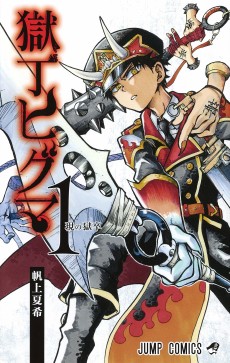 MANGA ActionGokutei Higuma
MANGA ActionGokutei Higuma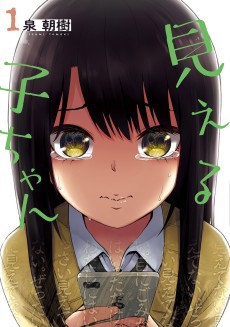 MANGA ComedyMieruko-chan
MANGA ComedyMieruko-chan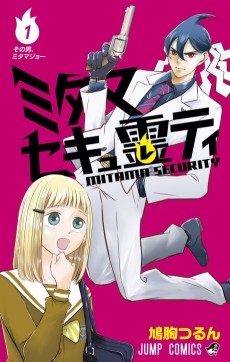 MANGA ActionMitama Security
MANGA ActionMitama Security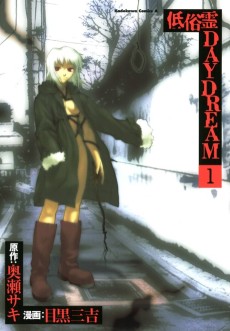 MANGA ComedyTeizokurei DAYDREAM
MANGA ComedyTeizokurei DAYDREAM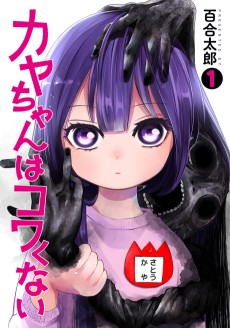 MANGA ComedyKaya-chan wa Kowakunai
MANGA ComedyKaya-chan wa Kowakunai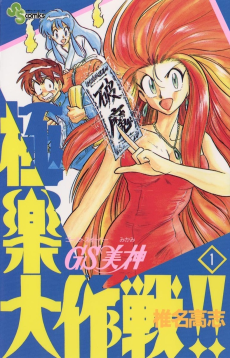 MANGA ActionGhost Sweeper Mikami
MANGA ActionGhost Sweeper Mikami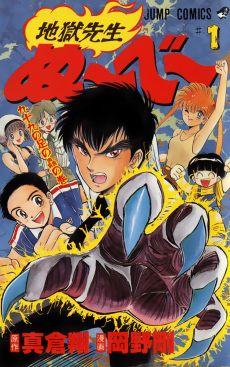 MANGA ComedyJigoku Sensei Nube
MANGA ComedyJigoku Sensei Nube
SCORE
- (3.65/5)
MORE INFO
Ended inOctober 19, 2021
Favorited by 116 Users


